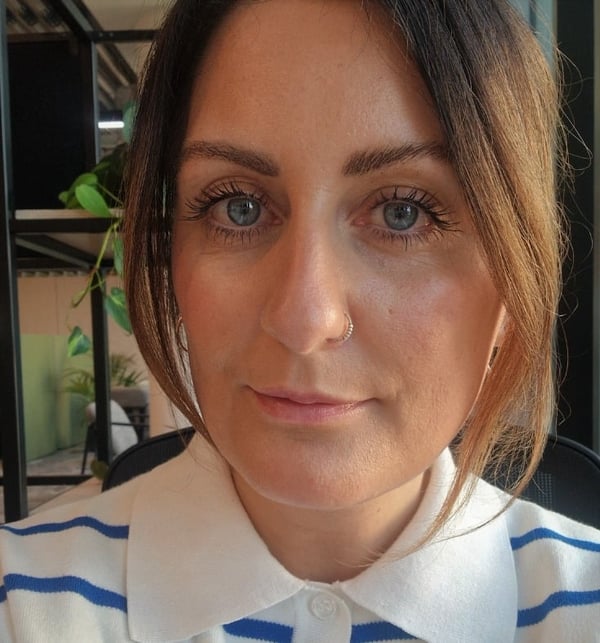How do life insurance companies obtain your medical information?
There are few things more personal than our health, and we all rightly expect our key medical information to be in safe hands. So can life insurance providers access medical records, and if so, how? To help put your mind at rest, we’ll explain how medical information is used for life insurance purposes, and your rights as a consumer during the process.

Life insurance and your medical records: how it works
When you apply for life insurance, you’ll be asked lifestyle and medical questions within the application form. Your insurer will then assess if the insurance can be offered, how much it will cost you and whether any restrictions will apply.
You will also be asked to give your consent for the insurer to request a medical report from your doctor. Once you’ve given permission, the insurance company can obtain your medical information by requesting a medical report from your General Practitioner. The report could include details of consultations with any doctor or healthcare professional.
A medical report can help an insurer decide whether they can offer you a policy and how much it should cost.
But your medical history is not the only factor that an insurer will consider, as they will also assess the risks associated with your age, occupation, lifestyle and smoker status, for example.
No – a life insurance company will need your consent in order to access your medical records. This consent is requested under the following Acts:
- The Access to Medical Records Act 1988
- The Access to Health Records Act 1990 (as applicable)·
- The Access to Personal Files and Medical Reports (Northern Ireland) Order 1991 (as applicable)
- The Isle of Man Access to Health Records and Reports Act 1993 (as applicable) which gives consent for the insurer to apply for a medical report for insurance purposes.
While you are within your rights to refuse your insurer consent to obtain a medical report, bear in mind that this may affect your ability to get life cover. Remember that insurers should only request medical information that is relevant to your application.
When you give consent, you’re entitled to tell us that you would like to see a copy of the report before it’s sent from your doctor to L&G. If a medical report is requested, you will be notified, and you will then have 21 days to arrange to see the report with your doctor. If you don’t wish to read it, your doctor can forward this straight to us.
What information in medical records do life insurance companies check?
The medical report may request information on the following:
- Blood pressure readings
- Cholesterol readings
- Height and weight measurements including waist size
- Medications you’ve been prescribed
- Treatments you’ve received
- Referrals to specialists
- Allergies
- Lifestyle information such as smoking habits or alcohol use
- Test and scan results
- Hospital discharge summaries
- Correspondence between your GP and other medical professionals
- Dates relating to your medical history.
Remember that your insurer won’t necessarily request information on all the above as they can only use relevant medical information when assessing your application.
How far back can insurers check medical records?
An insurer can access any relevant medical information as far back as the records allow, but in practice, may be more interested in medical issues that have arisen in the last five years, requesting information on your current health situation including if a full recovery has been made and the length of time you’ve been clear of a condition.
Will my medical information be safe?
Doctors and health professionals often receive requests to obtain medical information from insurers. There are an established set of principles developed between the Association of British Insurers and the British Medical Association to ensure that medical information for life insurance is handled correctly.
During the 21 days following the insurer’s request for medical information, you can ask your doctor to make amendments, deny them permission to send it, or agree to the report being sent without any changes.
Your doctor can refuse to make amendments, in which case you’re allowed to include your own personal statements in the report. Under the Access to Medical Records Act, your doctor doesn’t have to tell you any information they believe will cause harm to you or someone else’s physical or mental health.
You also have the option to request to see a copy of the medical report at any time within 6 months of the date the doctor sends it to L&G.
After you apply for L&G life insurance, we will assess your application and consider a range of factors – including your age, occupation and health history. Every applicant has different circumstances, but we will let you know within a matter of days or weeks whether we require additional medical information.
No, life insurance companies do not always need to check medical records with a doctor.
However, sometimes your insurer may need more medical information in order to make a full assessment. A medical report may also be necessary due to the amount of cover requested. But remember, they will need your written permission first.
You may be asked by an insurer to attend a medical examination so they can accurately assess your life insurance application. This can be undertaken by your own doctor or an insurance trained nurse, and may include blood tests, a smoker test or a urine test, for example. But of course, for many applicants it’s possible to get life insurance with no medical.
Yes, in order to process a claim, life insurance companies may need to check medical records following a death.
L&G will consider a variety of evidence, including the cause and timing of death, documentation left by the deceased and any medical history that can be reasonably obtained.





